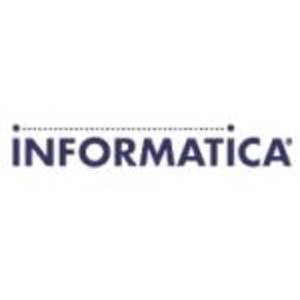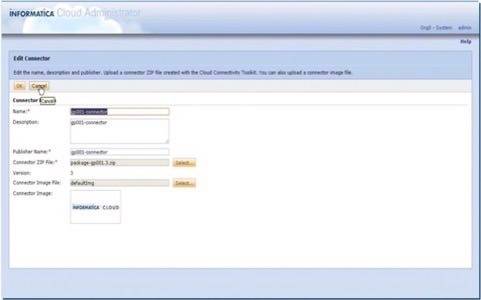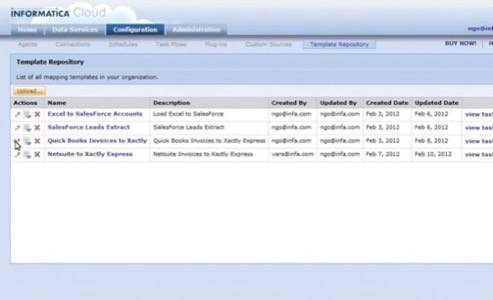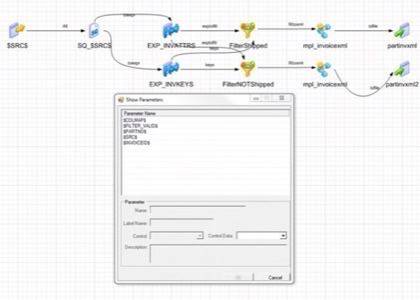There are two competing approaches to the emerging field of cloud-oriented data management. One is tied to the field of “big data,” and is based on the theory that unique data from disparate sources can be unified through a single repository or warehouse – this is the IBM ideal that is making advances this week at the company’s Impact 2012 conference in Las Vegas.

The other may seem just as wild: Every enterprise will have a unique repertoire of data sources, some of which will need to be paired. Informatica’s theory is that IT departments will discover the ways to integrate these disparate data sources on their own, and then once they attain a solution, will be willing to share their discoveries with the rest of the world through a kind of apps store. It’s the basis behind the Informatica Cloud platform, to which ReadWriteWeb introduced you last November (Informatica’s Integration Cloud Bridges SAP, Salesforce, Others), and which today took the next critical step: the launch of a Developer Edition of the tool kit Informatica customers will use to create these integration apps.
“One of our core technologies is data federation,” stated Informatica’s cloud marketing vice president, Darren Cunningham, in an interview with ReadWriteWeb today.Yes, he’s seizing upon IBM’s key phrase these days and using it for what IBM would likely describe as its own purposes.But the point he’s making is that you might not need a completely separate, new and barely manageable “big data” repository just to make existing data interoperable.
“What’s happened is, these cloud applications have come in [to the enterprise] through what we call ‘outside-in’ purchasing – divisions, departments. And the result in many organizations is siloed information,” Cunningham continued, “siloed data, data fragmentation.” Up to now, he said, Informatica has been approaching its data integration services as “purpose-built” applications that utilize a cloud-based platform to interleave one format with another – making existing data from SAP and SQL Server, for example, immediately accessible to Salesforce.

In our first interview with the company last November, Informatica flat-out admitted it would not be able to conceive, let alone produce, every foreseeable input/output connection between data sources on its own.It intended to build tools to let customers not only do some of this for themselves, but discover instances where other companies have already done the job.With Informatica’s scheduled Spring Release, whose rollout begins now, IT departments are getting a new Cloud Connector Toolkit – a kind of IDE for homemade, purpose-built cloud integration.
It’s a bit of a stretch, especially since cloud services and nearly anything that gets the “-aaS” treatment these days is being purchased by operations managers, not the typical procurement managers and CIOs.So won’t Cloud Connector have two different audiences: the buyer and the user?
Cunningham responded this way: “Really, how this business started was through selling to the one group that was really dominating the purchasing and implementation.In the last six months in particular, we’ve seen a real tipping point where enterprise IT can no longer run from the cloud. More organizations are becoming cloud-first, where they have to justify why a purchase isn’t cloud-based.Over the last few releases, we’ve focused on the enterprise IT set of requirements, to make this something they would even consider.We’ve introduced things like fine-grained access control, and the ability for one master instance of Informatica Cloud to be deployed to different groups, and centrally manage who can access what data when.We’ve really tried to meet the needs of the group whom we saw emerging as the buyers.”
Nearly every viable cloud service platform today offers a RESTful API – it’s becoming part of the definition of a platform.Cunningham believes that as APIs become a regular part of the enterprise-computing landscape, the need for some kind of ecosystem to enable data-driven connections between the platforms exposing those APIs will be obvious.By contrast, he argued, “With IBM, it’s hard to know where things are going to fit within their different InfoSphere and WebSphere buckets.”

Once developers make connections, they may voluntarily make them available through the Informatica Cloud.Though some templates will be made available through the Template Repository (above), other partners will be able to certify their products through Informatica and sell them through its marketplace – so it’s literally building an apps store, even in the retail sense.“In future phases of delivery, we envision this benefitting customers as well,” explained Cunningham, “where internal IT might build a privately built connector or tool, and make it available within Informatica Cloud.That will be Phase II of our Cloud Connector Toolkit; Phase I is really designed for systems integrators and applications developers.”
One example of a working partnership Informatica shared involves sales incentive compensation management solution provider Xactly (say that three times fast!), which built an SMB version of its application, called Xactly Express, on Salesforce’s Force.com platform.Xactly Express needs to connect with small-business accounting packages such as QuickBooks or NetSuite (which may not be a requirement for the enterprise), but the company’s R&D team was already committed full-time with the core product.

So Xactly partnered with Informatica in the production of connectivity templates, using tools like the one depicted above.Now Xactly customers are connecting to their database-bound tables by way of RESTful API calls placed to the Informatica Cloud, which reinterprets the data and presents results back in real time.“The Xactly Express buyer and user doesn’t know that Informatica is in there; we look like part of their administration screen,” explained Cunningham, noting the company’s less-than-unique-but-fitting new marketing slogan, “Informatica Inside.”
His argument is somewhat the opposite of IBM’s, and to some extent SAP’s as well – the notion that information workers must get smarter and build new skills for overseeing and analyzing a plethora of data sources through a single, overarching repository.Informatica is arguing that if integration and federation are truly working properly, the customer actually won’t notice anything new or overarching at all.
“Integration cannot really be pushed out.It needs to be dealt with early and thought through,” Cunningham added.“Security will always be a big question as it relates to cloud computing, but integration has become much more top-of-mind, whether it’s a Software-as-a-Service platform or Infrastructure-as-a-Service.That’s where companies like Informatica have a great opportunity, and that’s why we’re trying to make our technology as easy to adopt and easy to embed as possible.”










